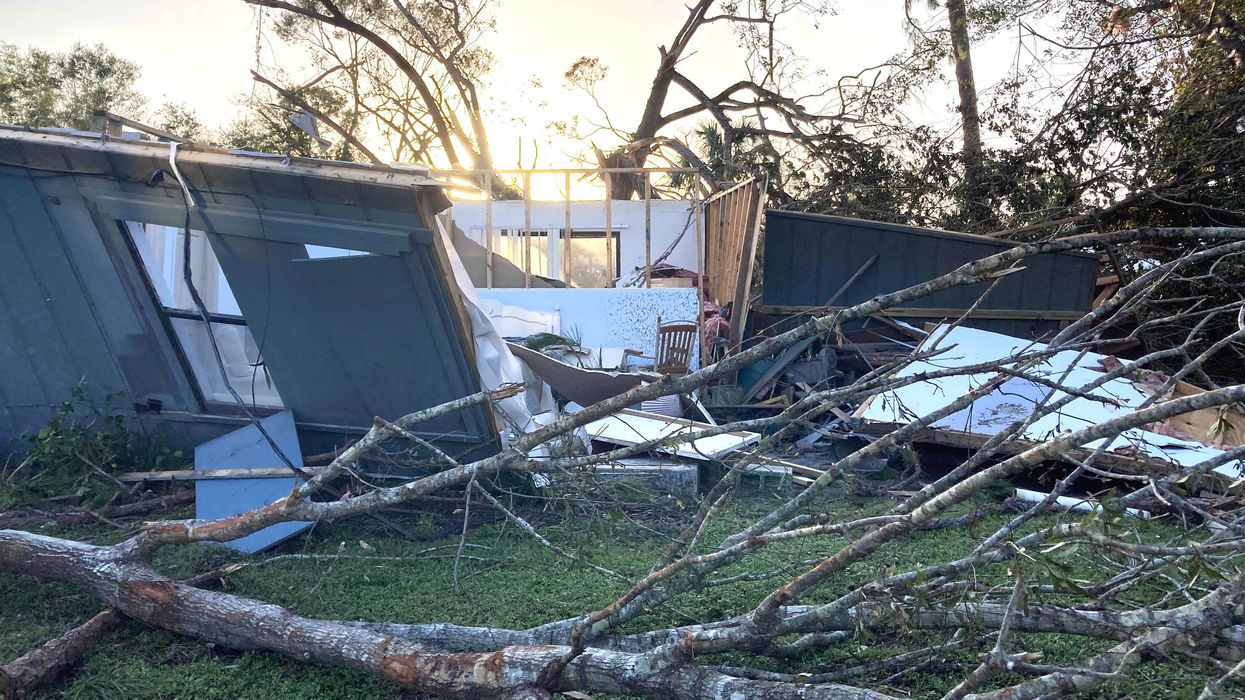Frazier is an assistant professor at the Crump College of Law at St. Thomas University and a Tarbell fellow.
Before I left for the airport to attend a conference in Washington, D.C., I double checked with my wife that she was OK with me leaving while a hurricane was brewing in the Gulf of Mexico. We had been in Miami for a little more than a year at that point, and it doesn’t take long to become acutely attentive to storms when you live in Florida. Storms nowadays form faster, hit harder and stay longer.
Ignorance of the weather is not an option. It’s tiring.
I arrived in Washington and incessantly checked the weather. Each hour introduced a new wrinkle in the forecast. And, as a result, another text to my wife — asking how hurricane prep was going, pledging I’d make my way home and nudging her to cross her fingers for a little longer. I carried on in hopes that it would be another instance of a storm shifting direction — subjecting some other community to its wrath (a horrible thought that you just can’t think too long about).
The storm didn’t shift. My schedule had to change. Twelve hours after landing in D.C., I found myself again going through TSA, finding a quick meal and praying my flight would take off (and land) smoothly. I arrived home around 12:30 a.m. and slept on the couch to avoid waking up the dog (and, by extension, my wife). We woke up and continued the storm prep. Our friends and family called to check in. Our coworkers asked if we’d be on time to various meetings. The storm protocol carried on.
The storm shifted. Well, at least a little. Miami didn’t experience nearly as much devastation, flooding and harm as its neighbors to the north. We breathed an odd and awkward sigh of relief. What a terrible feeling. The two of us were exhausted. But home. Safe. Warm. Many couldn’t say the same.
It’s going to be hard to keep this up when more storms head our way. The local weatherman who cried “Category 5!” becomes a little less reputable after even one storm dives in a new direction. The email from the landlord encouraging you to stockpile supplies seems a little over the top. It’s all emotionally, physically and, in some cases, monetarily expensive. For all those reasons it’s not surprising why some people become numb to emergency warnings.
Disaster fatigue is a real thing. We need a cure.
Our interconnected, chaotic and turbulent world is going to continue to test us. Storms will keep coming. Political turmoil won’t just disappear. Economic swings will continue. Tranquility is officially a scarce commodity. Individually, we must remain vigilant and resist the temptation to hope that the latest storm, stock market drop or otherwise crisis isn’t going to take us out. Societally, we need to make it easier to transition from the status quo to prepped for the worst-case scenario.
The solution is raising our collective level of preparedness across every dimension. With respect to natural disasters, periods of smooth seas and clear skies should be used to spread emergency kits. Storms like Helene show that even so-called climate havens like Asheville, N.C., need to be ready for the worst.
When it comes to political stability, we ought to continue to explore ways to decrease the partisan temperature. This may include greater investment in local news outlets that can make sure folks have alternatives to social media for essential information.
And, in light of financial uncertainty, we should develop and encourage novel means to bolster the size of the average savings account. This may take the form of traditional tax incentives to reward wise financial decisions to more creative approaches like savings lotteries in which each dollar saved increases the odds of earning a jackpot of sorts.
Disasters aren’t going away. Our policies should reflect the reality that preparedness must become our new normal. It’s not fun. It won’t be easy. But it’s necessary.




















Trump & Hegseth gave Mark Kelly a huge 2028 gift